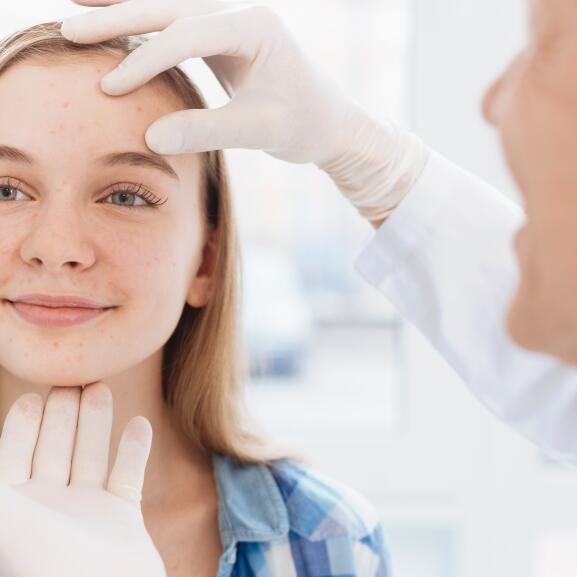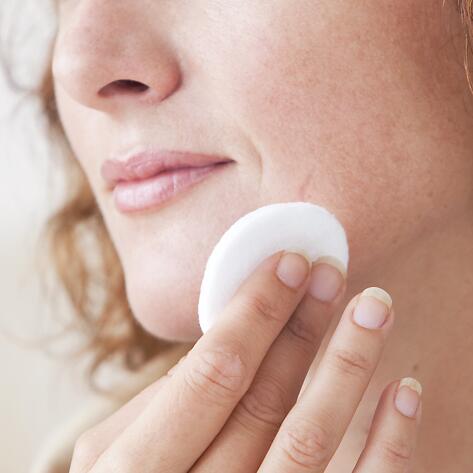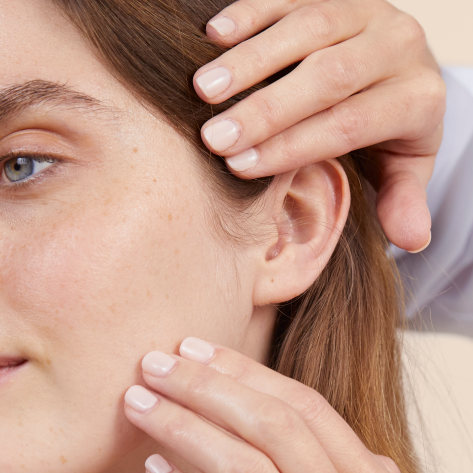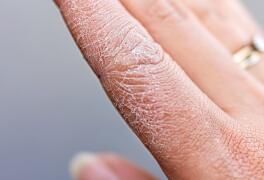EXPERT’S NOTEBOOK
Skin imperfections
SPOTLIGHT ON SKIN IMPERFECTIONS
Scars, spots, birthmarks and a dull complexion are all skin imperfections that can be corrected or masked with appropriate corrective care.
The low down
Learn everything there is to know about different skin imperfections
Different skin imperfections
There are many different skin imperfections and different aspects of skin imperfections. Some are congenital, such as birthmarks. They can be light, depigmented, pigmented, or red (angiomas).
Others are acquired skin conditions:
- vitiligo white spots (localised de-pigmentation) are harmless but unsightly and are mainly visible on dark skin.
- Dark spots are the result of excessive sun exposure. They are more common during pregnancy, hence the name " pregnancy mask ", but also occur outside of pregnancy in women and sometimes even in men.
- Some skin conditions on the face (couperose, rosacea, etc.) can be improved by specific skincares but never completely go away.
- Common acne deserves a special mention. Some acne spots can leave long-lasting marks, especially if they are large, deep, or if they have been “messed with” too much.
All cosmetic surgery or plastic surgery on the face can be followed by a "difficult" period, during which healing is not yet complete. These temporary imperfections also warrant careful attention.
Finally, some more severe skin disorders (ichthyosis, severe burns, etc.) can require corrective makeup.

Key elements of prevention
Dermatologists are very careful to ensure that, in all these situations, you can benefit from the best care, both preventive and curative. Because “prevention is better than cure” is especially true for imperfections on your face.
The key elements of prevention are:
- Firstly, early and effective skincare of inflammatory dermatitis;
- then, good sun protection. Most pigmentation spots are either caused or made worse by the sun. Careful photoprotection is good "anti-dark spot" insurance. Choose products with a high SPF and broad-spectrum, and galenic formulas allowing for good adhesion to the skin so they are long-lasting.
- Avoid trauma.
It’s not always easy, but you should at least “not add to it" by accidentally attacking the skin.
Whether scratching or picking out of habit, as soon as our fingernails get close to our skin there is a great risk of causing lasting marks.
Beware of scars!
If a wound has to be stitched or a lesion removed, the restore must be done according to the rules of dermatological surgery, so that the scar, which is often unavoidable, is as inconspicuous as possible. Despite all these precautions, we may be unable to prevent some imperfections and may not be able to effectively deal with them using any of the means currently at our disposal.
In these cases, in particular, corrective makeup techniques are a great alternative solution.

Dermo-cosmetic skincares
“ High-tolerance ” products: using skincare products with a high tolerance allows you to minimize irritation that may occur in the event of an intolerance or allergy to a particular ingredient.
Dermatological makeup: corrective makeup is an important weapon in the dermatologist's arsenal. Whether it’s a temporary situation (following dermatological surgery) or concerns long-lasting imperfections, when used well, medical makeup allows for truly amazing results.
“ Camouflaging ” measures are suitable for
- dermatological conditions such as angiomas, vitiligo, eczema, psoriasis, couperose, rosacea, acne and acne scars, seborrheic dermatitis, melasma;
- or following dermatological procedures, such as laser, dermabrasion, filler injections, peels;
- or following surgical procedures such as lifts, blepharoplasty, rhinoplasty, etc.
To correct skin imperfections, the basic principles are:
Using two complementary colours in the colour wheel neutralises skin imperfections.
- Green neutralises red (couperose, scars, angiomas, etc.).
- Yellow neutralises violet (dark circles, varicose veins, etc.).
- Brown " hides " white.
Light shades lift, while dark shades contour.
By playing with these contrasts, we can correct the shape of the face, reduce scars or sunken areas and hide dyschromia.
The white tone subtly evens and catches the light.
Our expert answers your questions
Living better with blemish-prone skin
There are a wide variety of birthmarks. To reduce birthmarks, please consult a specialist to obtain the relevant information, perform medical examinations if necessary, and determine whether any treatments are available. To conceal birthmarks, using corrective makeup is a great solution.
It depends on the scar:
- If the scar is sunken (hollow), even it out with our compact foundation cream, and then use a corrector stick.
- If the scar is raised, after evening out the complexion, apply a little more of our Compact Foundation cream in a shade slightly darker than the previous one (dark colours make the scar look less prominent).
Your hands are often a similar colour to your face, so use the area near the base of your thumb (between the palm and back of your hand) to test the colour. Apply the foundation to the lighter area. The shade closest to the dark area is the one to remember. If you prefer a lighter or darker tone, choose a tone below or above.
Clean your skin thoroughly. Apply a makeup base adapted to your skin's level of sensitivity. Neutralise imperfections with a corrector stick. Even out the complexion with a liquid foundation or a compact cream. Correct localised imperfections with a concealer brush. Fix makeup in place with our Mosaic Powder. Enhance your face with the Mosaic Powder for eyelids, the eyebrow corrector pencil to brighten your eyes and the lip and contour duo to enhance your smile.
Discover our solutions
For concealing your blemishes
Our skincare products adapted to skin imperfections

NEWSLETTER
We’re always here for your skin!
All our tips for taking care of your skin day to day.

FIND OUT MORE
Read advice from our experts
Which skin care routine should you adopt?
Identify what it really needs with the help of our experts and discover the most suitable skin care routine for you.





